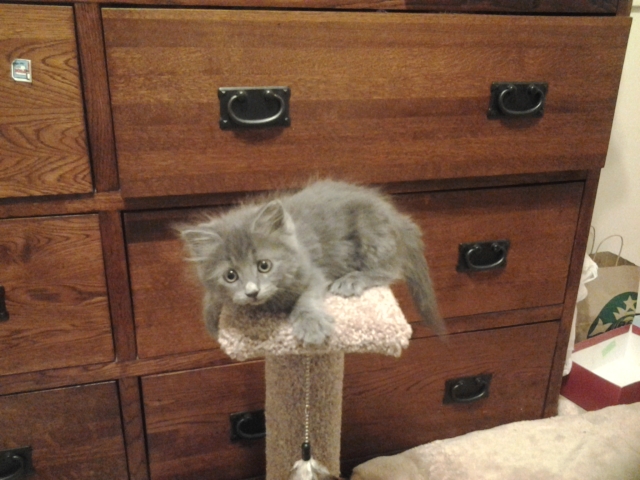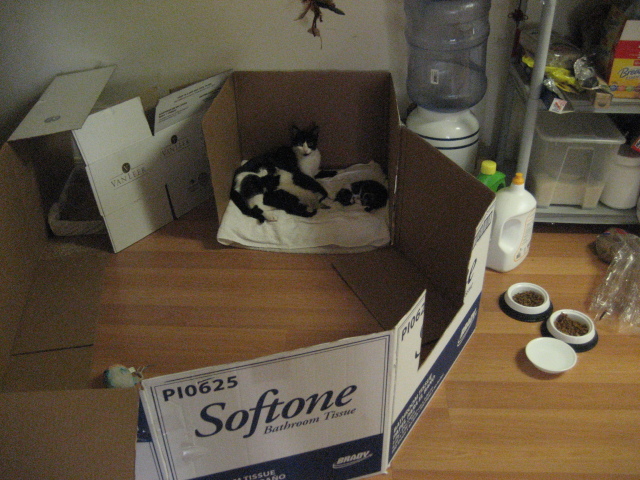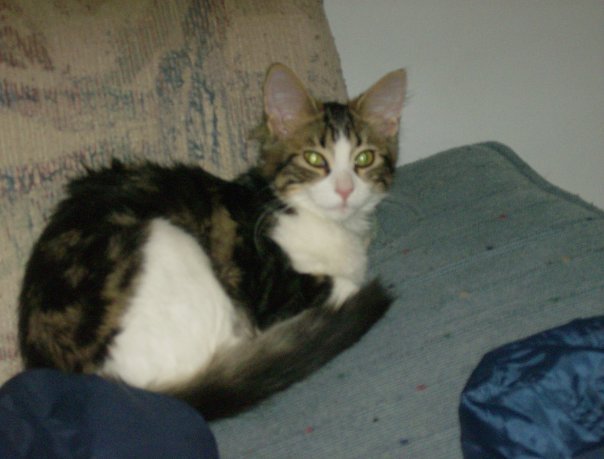QuestionOn 1-31-12 I received a male Bengal kitten who was born on 12-15-11. He is eating well and using the litter box. He is very active and we have gotten him a cat tower which he climes all the way to the top. He has numerous toys and plays with them. He just on the spur of the moment will grab your ankle and start biting and if you push him away he will put his ears back and attack again and start biting and will continue to do this. We have tried the approach of pointing a finger at him and sternly saying no with no effect. We then tried a spray bottle of water which helped the first time but did not after that. We are trying the sternly saying no then grabbing him but the scruff of the neck and holding him with his paws off the ground then holding him to the ground for a couple of seconds. That doesn't help either. I first just picked him up and tried to pet and relax him and that didn't help. He also sleeps in bed between us and has a couple of toys with him.He will suddenly take of running around the covers playing and then quickly attack and start biting your arm or foot and leg if its exposed. Again to stop him the only thing that works is to push him off the bed. This didn't start until about after the first week he was here. Could you please advise if I am doing something wrong. Is he maybe in some kind of pain? Could this be teething? Would he need companionship like another kitten? I would appreciate any help you can offer. We want to keep him as we are very much attached to him already. We are elderly and this would be our last pet. Thank you
AnswerBob,
By my calculation, this kitten was only 6 weeks of age when you got him! He would have just been weaned, would not have had all his shots, and, probably, was never socialized to humans. Normally, we do not let our kittens go until they are about 4 months of age. (We do Abyssinians and Maine Coons.)
Anyway, given the age, his behavior is perfectly normal. If you saw how kittens (even very young kittens) play, they have a lot of biting/scratching behaviors. This is how they play with their siblings and mama. The biting/scratching behaviors are a sign of affection. Cats have very, very tough skin, so these biting/scratching behaviors do not bother the cats at all. However, we humans have much softer skin, and kittens need to learn they cannot play with us with the same biting/scratching behaviors they use on other cats.
We like to pick up the kitten, stroke it gently, and speak to the kitten softly. Most kittens like this "game". If the kittens begins the biting/scratching behaviors, we scruff it, yell no, put it down and walk away. Most kittens figure out the biting/scratching behaviors with people lead to an undesirable result, i.e. cessation of the holding, stroking, speaking softly game. Most negative reinforcement techniques, especially water sprays, really do not work very well. Positive reinforcement works better with cats. If your kitten behaves gently towards you, reward him with a special treat.
Another thing about Bengals is that they seem to have boundless energy, so as your kitten grows, you will have to provide energy using toys. For example, you can get a "cat wheel", a larger version of the hamster wheel, which they can use as a kitty treadmill. In addition, you can play with the kitten with a tease, but you have to let the kitten catch it and "destroy" it periodically. Let the kitten take out any aggression on toys, not people. Be careful not to overtire your kitten. Once the kitten is over 4 or 5 months of age, he will not tire as easily. Young kittens have a tendency to go all out and then suddenly fade!
One more hint: under no circumstances should you or any family member wrestle or roughhouse with the kitten. This just encourages the biting/scratching behaviors you want to stop. It is important, with cats, to be consistent and persistent in training and any disciplines.
You should be able to get some improvement in behaviors in a few weeks.
As far as teething is concerned, at 6 weeks there may be some teething going on. If his gums are inflamed, you can check with your vet and put him on a round of clindamycin (remember, I am not a vet). Your vet can give you the dose. Our cats will eat it in baby food (i.e., a good strained meat baby food with no added salt, onion, or garlic). We use this type of baby food as a treat for our cats.
As to a companion kitten, this might be a good thing, but maybe not. If you are home most of the time, he probably does not need a companion. But we can talk about that in a follow up.
Please let me know if you have further questions.
Best regards... Norm

 My 12 year old indoor/outdoor male escaped 2 weeks after a recent move
QuestionEefa and our lost blac
QUESTION: We trie
My 12 year old indoor/outdoor male escaped 2 weeks after a recent move
QuestionEefa and our lost blac
QUESTION: We trie
 why does my kitten keep peeing on the bed
Question
My kitten
my 7-8 week old kitten has b
why does my kitten keep peeing on the bed
Question
My kitten
my 7-8 week old kitten has b
 mother cat needs?
Questionplay area
QUESTION: hi Jessica, my mothe
mother cat needs?
Questionplay area
QUESTION: hi Jessica, my mothe
 my kitty Valentine
QuestionQUESTION: my kitten is 3 month old I only had h
my kitty Valentine
QuestionQUESTION: my kitten is 3 month old I only had h
 pregnat cat ??
Questionsophia
QUESTION: no one is avaible for t
pregnat cat ??
Questionsophia
QUESTION: no one is avaible for t